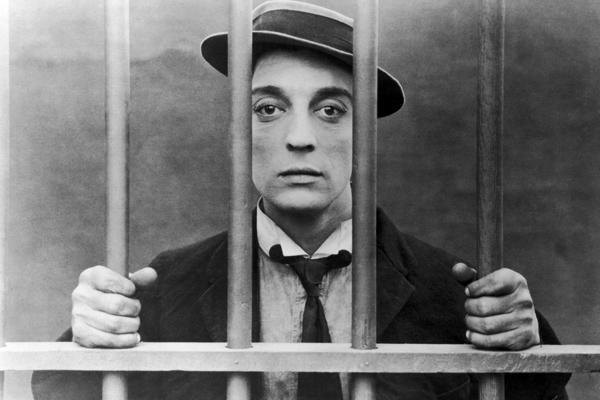"I resented my uniform, which made me feel ridiculous. Apparently, the quartermaster general had never anticipated that anyone under five feet would be allowed to join the United States Army."
Joseph Frank "Buster" Keaton was born in Piqua, Kansas, to a family that provided the foundation for his talent to entertain. His family called themselves "The Three Keatons" and performed physical comedy; Myra Keaton played the saxophone while Joe and Buster Keaton performed skits.
Keaton continued his career on stage as he grew older and began appearing in vaudeville films with Roscoe "Fatty" Arbuckle.
Despite being drafted into the 40th Infantry Division in 1917, Keaton continued his antics both incidentally and purposefully. On the night before leaving the U.S. for France, Keaton mimicked the dress and attitude of officers and drove by the base guards with his girlfriend in tow. The pair managed to have a night on the town without getting caught.
When Keaton served, he developed a cold that damaged the hearing in one of his ears. One night, while returning to base, he was challenged by the guards three times. Although he couldn't hear them, he suddenly became wary and stopped, an action that saved his life. He explained the situation to the soldiers and successfully returned to base.
During his service, Keaton banded together with a few fellow soldiers and formed "The Sunshine Players." They performed vaudeville for different regiments, and Keaton always took center stage.
His main pull was a routine called the snake dance. He would dress up as an Egyptian and pretend a line of sausage links was a snake that he would charm. His routine was so successful that officers repeatedly requested him to perform.
Before Keaton returned to the U.S., a general requested that he perform his snake-dance routine for a party. Afterward, he was offered the use of the general's car and driver.
Keaton accepted and discovered a second party underway involving many of his enlisted comrades. He told the driver to stop the car and open the door for him.
Everyone at the party immediately recognized the general's insignia on the side of the car and thought a surprise inspection was underway. Keaton walked out of the car to a dead-quiet group of soldiers, but soon they recognized him and chased him away.
After serving, Keaton returned to a legendary career in film. His military service influenced a number of his routines and projects, including "The General," which has been praised as one of the greatest films ever made. In "The General," Keaton plays a hapless train engineer whose fiancée won't accept him until he enlists in the Confederate army.
Keaton developed an enduring legacy in entertainment. Entertainment Weekly described him as the seventh-greatest director of all time, and the American Film Institute claimed him as the 21st-greatest male star of all time. He died on Feb. 1, 1966, from lung cancer.
Keep Up With the Best in Military Entertainment
Whether you're looking for news and entertainment, thinking of joining the military or keeping up with military life and benefits, Military.com has you covered. Subscribe to the Military.com newsletter to have military news, updates and resources delivered straight to your inbox.











